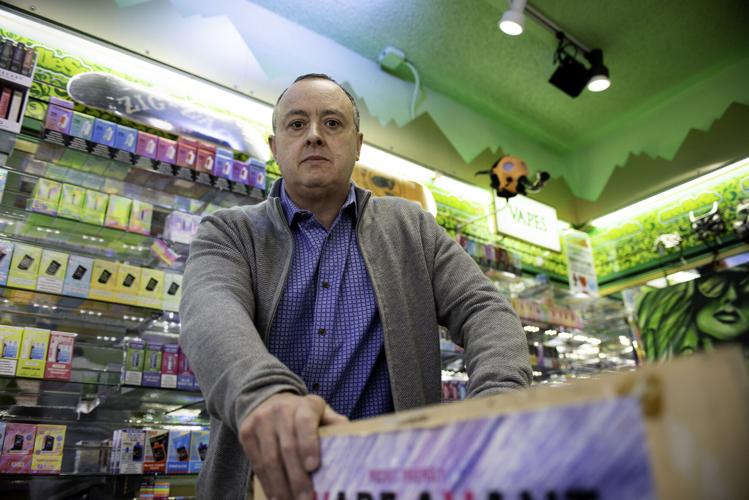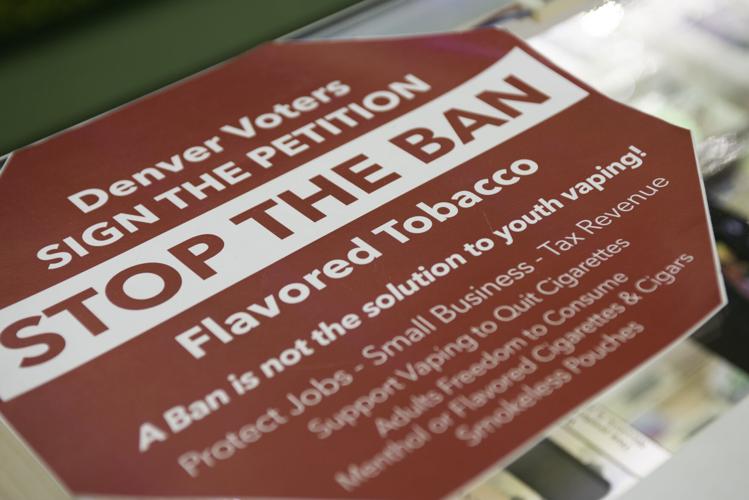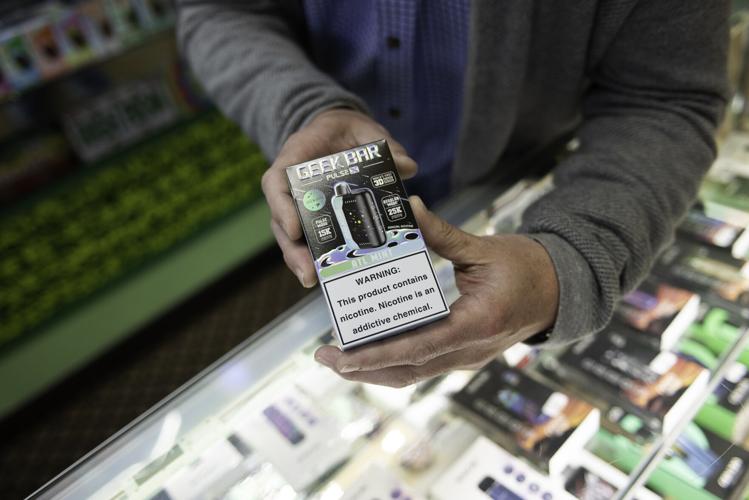Denver vape store owners say they have enough signatures to put flavored tobacco ban on November ballot

Myxed Up vape store owner Phil Guerin sees the brewing battle between local tobacco retailers and the Denver City Council over a new ordinance that bans the sale of flavored tobacco products within the city limits as a David vs. Goliath kind of story. Guerin and other vape store owners plan take their fight to the voters this November,
Deborah Grigsby
Vape shop owners said they submitted enough signatures to ask voters this November whether to retain or undo a new ordinance that bans the sale of flavored tobacco products.
The vape shop owners — Phil Guerin, Ellen Rochelle, Shanna Finch, Kristen Hensel and Russel Hensel — turned in 17,000 signatures to the city, almost twice the 9,500 needed to put the referral on the ballot.
Guerin said he’s relieved they met the deadline and secured more than enough signatures. He said getting there has been expensive — it cost his group more than $240,000, most of which went to pay the firm that collected the signatures.
“It blows my mind, actually, how difficult it is to actually get those signatures validated and how those signatures are scrutinized,” Guerin said. “I wish that this law would have been scrutinized the same way as the signatures that we collected, and then we would not be in this position right now. Sadly, we have to do all of our due diligence but the municipal government didn’t have to do any.”
Guerin, who also serves as president of the Rocky Mountain Smoke-Free Alliance Board of Directors, said the ban will eventually cost many family-owned businesses their livelihoods and the city more than $13 million in tax revenue.
The ordinance change, which passed on a vote of 11 to 1 and makes it illegal for any retail tobacco store to “sell, offer for sale, give, barter, deliver or furnish any flavored tobacco product or samples of such products,” went into effect March 18. It is not expected to be fully enforced until 2026.
Notices from the Denver Department of Public Health and Environment went out to retailers March 18, advising them to remove all flavored tobacco products from shelves.
According to the email advisory, the health department is responsible for the enforcement of the city’s tobacco ordinance and “soft enforcement” of the flavored tobacco law will begin on July 1. Fines and license suspensions for retailers found selling flavored tobacco products will commence on Jan. 1, 2026.
When it comes to protecting children from tobacco products, Guerin said vape store owners and proponents of the ban have a lot in common.
“We both want to keep kids away from tobacco,” he said.
He said the city’s ban on flavored tobacco products will not work.
“Kids don’t get those products from us,” Guerin said. “So, it’s sad that we’re the ones that are being blamed for this entire horrible situation.”
Guerin said most underage users get such products online, specifically from sellers on TikTok.
Supporters of the ban suggest the product’s sweet and candy-like flavors target youth, in particular, and serve as a gateway to further substance abuse.
City documents claim state the economic impact of flavored tobacco products in Colorado amounts to $2.2 billion in annual healthcare costs — $4.4 billion in smoking-caused productivity losses and $415 million in estimated Medicaid, which amounts to $772 per household tax burden.
The signatures for the ballot measure must still be reviewed and validated by the clerk and recorder.
This is not the first time Denver has waged a battle over flavored tobacco products.
The City Council passed a measure in 2021; Then-Denver Mayor Michael Hancock vetoed it.






